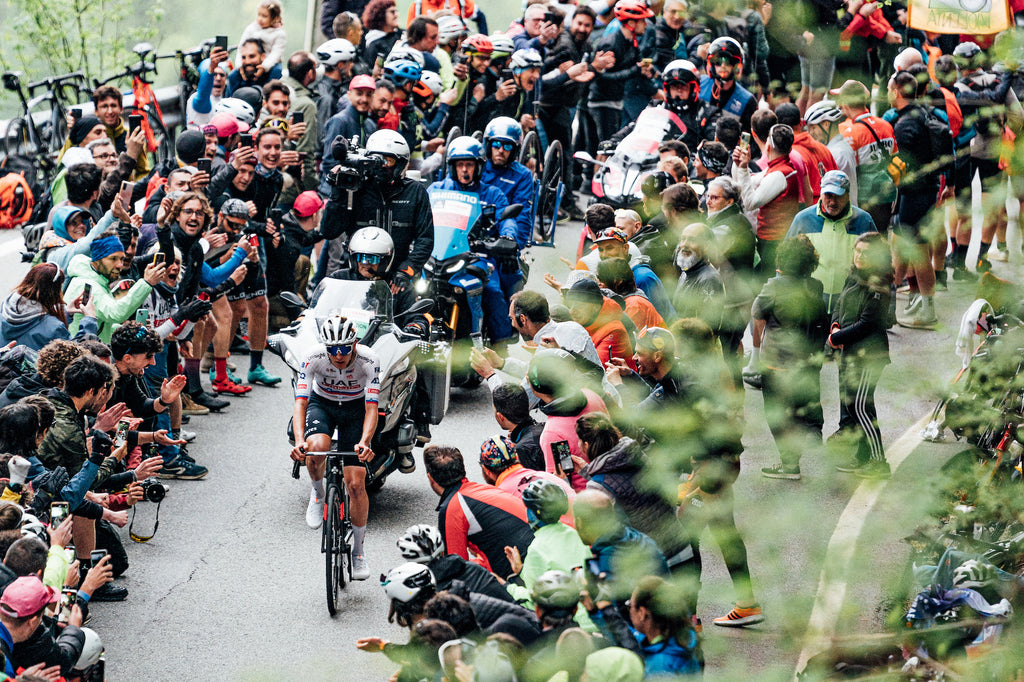With a spurt of sealant and a slow slip of the bike, suddenly the world’s best bike rider was on the ground and the peloton of the Giro d’Italia was speeding away from him. But even the indomitable Tadej Pogačar can’t corner on a flat tubeless tyre, and as he hastily picked himself up and received his spare bike from the (possibly too close behind for comfort) UAE Team Emirates car, you’d be forgiven for having wondered whether the incident would provide something more of a level playing field for the other general classification contenders on the final climb.
Given it took place just metres before the start of the final climb to Santuario di Oropa (drawing inevitable Marco Pantani 1999 comparisons), it’s the kind of issue which, for most bike riders, would produce some semblance of panic, if not at least some energy-sapping adrenaline as they scrambled to reclaim their place in the peloton. If Pogačar felt any of that, then he hid it extremely well. The Slovenian champion, first alone, then with the help of the alerted UAE masses, seemed to be back at the front of affairs in what felt like seconds. If any of his potential rivals had even noticed he’d gone (Geraint Thomas said he only realised when race radio told him Pogačar had returned), it felt like there was little time to capitalise on it, even if they had wanted to.
Again, for most ordinary riders, experiencing such misfortune and then racing to get back would probably prompt a period of sitting in, recovering and recalibrating back to the situation at hand. But then, Pogačar is no ordinary bike rider, and the desire to seemingly dispatch his rivals as early as possible in this Giro, as well as complete his set of Grand Tour stage wins, saw his team instantly move to the front to drive a pace that cut the group in half almost immediately. Everyone knew what was going to happen next. Once Rafał Majka completed his turn with 4.5km to go there was nothing anyone could do to stop Pogačar riding away to stage glory and the overall race lead by 45 seconds.

Watching such a spectacle prompts a feeling of uncertainty over the rest of the race. There is a certain thrill in witnessing the insatiable appetite of Pogačar to win; an Eddy Merckx-esque level of cannibalism that leaves you in both awe and disbelief. Conversely, it feels like he has aimed to have the fight for pink wrapped up in two days, and even the most optimistic cycling fan must struggle to see any way past his current 45-second lead, which could be significantly larger by the time the race reaches its first rest day.
There are some slithers of optimism, some straws to grasp at after the first two days. He was unable to get away from everyone on stage one on Saturday, and his winning margin today of 27 seconds felt like less than it could have been after he’d launched his attack, particularly given what we’ve seen from Pogačar in other races so far this year.
Yet watching him ride from almost the very back to out front on Oropa, from the worst misfortune to victory, feels more of a foreshadowing: that there is little anyone can do to stop Tadej Pogačar at this Giro d’Italia.






























